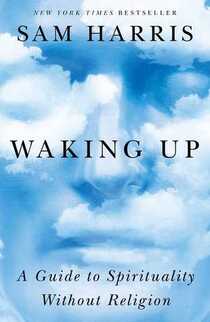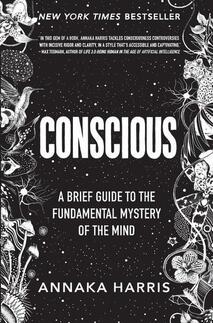The first is Episode #181- The Illusory Self. Most of this episode is a discussion with the writer and meditation teacher Richard Lang, but the introductory comments from Sam from 5:27 to 13:30 are particularly useful for my purposes. For those who can't listen to it, I'll copy the entire transcription of this portion of the podcast into a comment at the bottom of this post. But here are the most important lines:
- In today’s podcast I want to give you skeptics one more shot understanding what I’m up to with meditation. There are specific insights here into the nature of mind that I consider to be the most important things I have ever learned.
- I’ve been slow to understand just how much intellectual work is being done for me by the fact that I’ve had certain experiences in meditation. And these experiences have made certain features of the mind obvious.
- The reality is that if you can pay sufficient attention to your mind, the illusion [of free will and the self] disappears. It becomes obvious that everything is just arising on its own, including one’s thoughts and intentions and other mental precursors to action.
- Consider the analogy that I’ve sometimes used to the optic blind spot. You make two marks on a piece of paper. You stare at it. You close one eye, look at one of the marks, and bring the paper closer until the second mark disappears. This is a very simple procedure that allows you to see something right on the surface of consciousness that you would otherwise spend your entire lifetime overlooking.
- In seeing the blind spot, you’re actually seeing something subjectively, as a matter of direct experience, that reveals a deeper truth about the eye. Well, I can also say that the non-existence of an unchanging self in the middle of experience, an ego, the feeling that we call I, is also predicted by the structure and function of the brain. ... There’s no account of neuroanatomy or neurophysiology that would make sense of an unchanging self freely exercising its will. Meditation is ultimately a very simple procedure that allows one to discover the absence of this fake self directly.
Next, I'd draw your attention to Episode #159 - Conscious, which is a discussion with Sam's wife Annaka Harris about her book Conscious: A Brief Guide to the Fundamental Mystery of the Mind. Once again, there are a lot of interesting things said in this podcast, and I'll transcribe several relevant minutes in a comment below, but here are the most important lines:
- The [hard] problem is, why is it that any configuration of non-conscious material can suddenly have the experience of being that matter? There’s no explanation that we could think of that could make this less mysterious. It’s always non-conscious matter getting arranged in a very specific way so that it suddenly lights up from the inside. It seems that no matter how much we know about the brain, there’s nothing that will ever make this less mysterious.
- The most primary intuitions we have about consciousness live in two questions I like to keep asking myself. The first one is: is there any behavior on the outside of a system that can tell us conclusively that consciousness is present in that system?
- The second question is: is consciousness doing anything? Is it serving a function?
- The idea that consciousness might not be doing anything is problematic from an evolutionary point of view because people wonder then why it would have evolved. Surely it must be doing something, because it must be expensive metabolically on some level.
- So the argument about the evolution of consciousness is one that sends many people down the path of wondering if it is possible that consciousness is a fundamental feature of matter, that it is there in some form all the way down.
- The name for that general family of views is panpsychism.
- In my book I cite the title of this great article by Philip Goff, which is: “Panpsychism may be crazy, but it’s also most probably true.” That got me to the point where I started to take panpsychism more seriously. ... Once you’re able to break through the illusion of the self, these sorts of theories are easier to entertain or imagine.
Brief Comments
Having done a bit of meditation over the last 15 years, I can see the value of paying close attention to where thoughts, feelings, and intentions arise from. I can easily agree with Sam that there is no "unchanging self in the middle of experience, an ego, the feeling that we call I." But whenever Sam goes on about there being no self, I like to remember Laurence Krauss telling him he was pretty sure he could find a self somewhere within the vicinity of his body. He and Sam could be using different definitions for what the self is, however, and that's something I'll explore more later.
As for Annaka's points, I first wanted to let her introduce the idea of "the hard problem of consciousness" here. There will be much more about that in the next article focusing on David Chalmers who coined that term. As for Annaka's primary questions about consciousness, I think the first one looking for conclusive evidence of consciousness is a common error of essentialist thinking in an evolving universe where lines are blurry and there are no on/off eternal essences. Dan Dennett will address that later but it's important to see right away that looking for "consciousness" doesn't reveal any obvious answers. As for what consciousness does, that depends a lot on how it is defined, which neuroscientists have been teasing out over the last several years. Whether they find panpsychism all the way down will be up for interpretation. I'll cover much more about that further down the line.
What do you think? Are you even a you? Is the hard problem of consciousness hard to you?
--------------------------------------------
Previous Posts in This Series:
Consciousness 1 — Introduction to the Series



